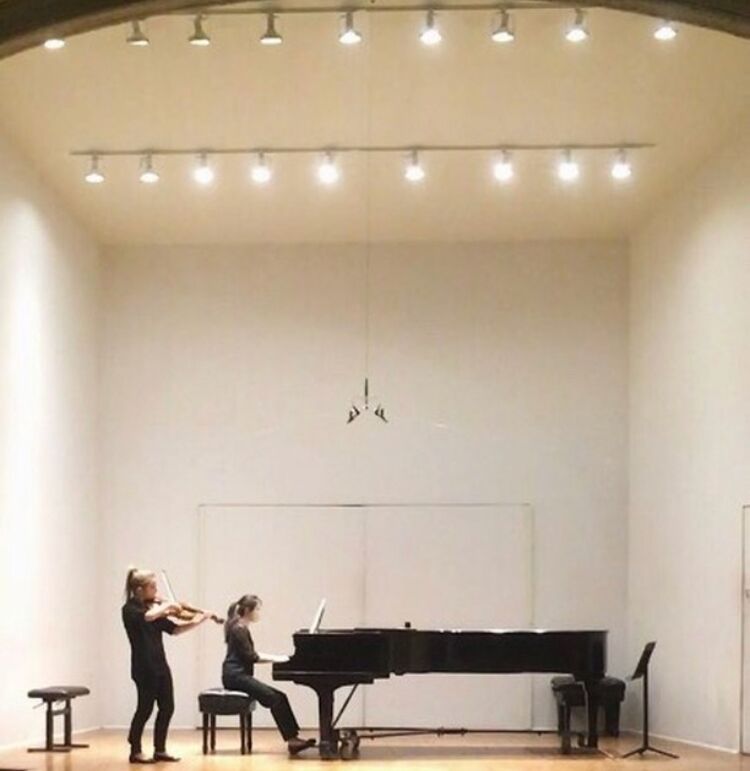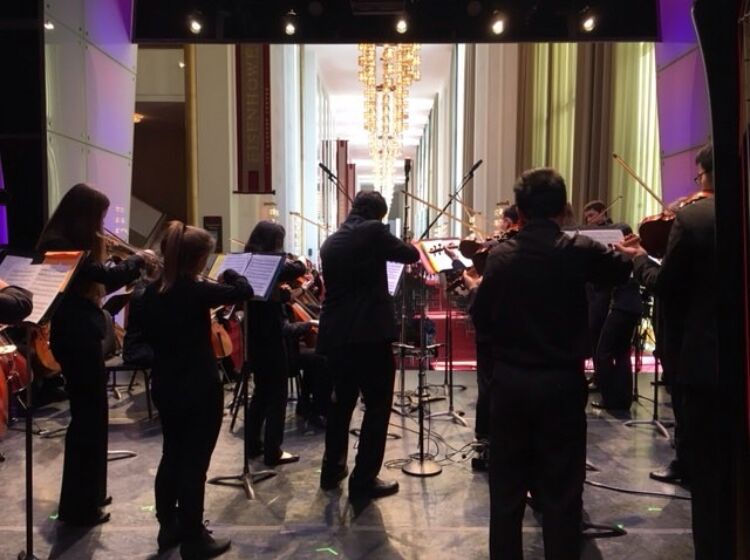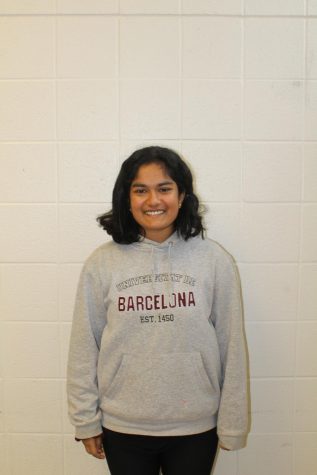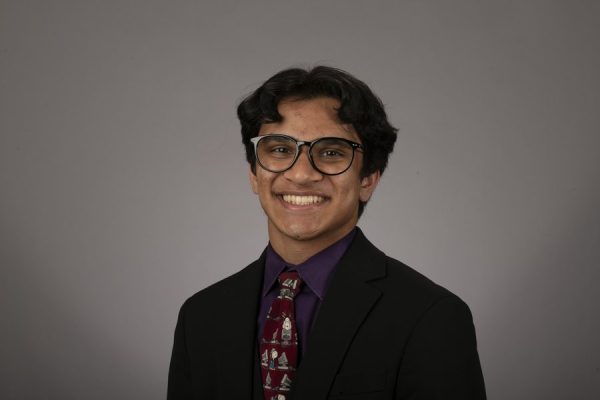Competitive Music Programs mold music players into professionals
Izzi Aronin practice with fellow violists on the Strathmore Stage. Aronin is a part of the Monttgomery County Youth Orchestra and National Youth Orchestra.
February 12, 2019
Junior Izzi Aronin used to be insecure about her chances of a music career. But after being accepted into the National Youth Symphony Orchestra freshman year—getting the opportunity to see the internationally recognized cellist Yo-Yo Ma on a stage during private practice, performing on the prestigious Swarthmore stage and having professional teachers that can tell her if her vibrato is too slow—she now confidently embraces her future in music.
NYSO is one of a number of local audition-only music programs for orchestra students. Whitman students often take part in these competitive music programs outside of school to further their expertise in their respective instruments. Teaching students how to perform professionally, providing advice from modern pioneers in the music industry and requiring hours of extra practice to refine every sound, the programs offer unparalleled preparation to go into the music industry, junior Becca Marr said.
Aronin has played viola since she was eight and has been annually accepted to Montgomery County Youth Orchestra since the third grade. She joined NYSO in ninth grade in addition to MCYO.
Through NYSO, she watches master classes when guest teachers give lessons to a specific group of people; guests during her time there have included Hilary Hahn, James Ehnes, Yo-Yo Ma and Nurit Bar-Josef.
Marr was first accepted into MCYO in third grade and has been annually re-accepted since the third grade. She was accepted into Peabody Institute of The Johns Hopkins University—a conservatory that combines a sense of community with preparing students for the music world—in ninth grade. Every Saturday at Peabody, after working with her quartet, Marr practices with a private instructor and then attends an academy class that focuses on feedback for each song on their setlist and body awareness to limit injury during their performance.
“In orchestra, you really feel like your instrument has a huge impact on the group as a whole. It’s so exposed,” Marr said. “If you make a mistake, it’s fine, but it’s also that you feel that sense of responsibility.”
Senior Ben Wolstein—who practices at the Paul Carr Jazz Academy—said that his instructor taught him to how to respect and break the rules of jazz. Wolstein appreciates the Academy’s collaborative atmosphere. He thinks high school music programs can be unnecessarily stressful, but he said practicing at the Academy feels like a “jam session.”
Wolstein’s instructor, Paul Carr, said Wolstein has improved his ability to play the same piece in different ways and add personality into his songs while keeping them of high quality.

Marr practices with a violist in a private room. She is a part of the prestigious Peabody institute, a place that will further her career pathway in music.
That’s usually how it works; the study of music helps a person gain confidence and think creatively while developing personal expression, Carr said.
“I expect my students to sound and act like professionals,” Carr said. “I know we don’t get there all the time, but you would be surprised sometimes. If you survive to sound like a professional, and prepare in that fashion, the results are always good and on a very high level.”
At Peabody, Marr noticed that the little details that go into a performance—whether the notes are vibrato or if the bow is played at a certain angle—can make an enormous difference.
These music programs also help with students’ in-school performances, music teacher Terry Alvey said. Students in these programs often become leaders in Whitman’s music department.
“To stay in those programs, you have to keep your skills up with the rigor of the program,” Alvey said. “We have really talented kids here, but they don’t all function at that same level. It helps the program here. It’s the model for the kids who want to get serious about music. This is what it takes: the discipline and commitment.”
Participating in competitive music programs can also add an impressive recognition to college applications; any previous “professional engagements” can serve to enhance the applicant’s chances, University of Maryland Music Admissions Officer Ruth Bright said.
Aronin irregularly has all-day rehearsals on Thursdays; the dates are chosen at the conductor’s discretion based on how hard the set list is. Making up tests and assignments from school can be stressful, she said. Marr has a similar experience: she devotes her entire Saturday to viola and her Sunday is usually reserved for homework. None of her friends wakes up at 6 a.m. on a Saturday, but Marr said she wouldn’t trade the extra practice for sleep.
Most of all, these programs have persuaded Marr to pursue a career in music.
“Without these programs, I wouldn’t be considering majoring in music. When I was accepted to Peabody, I made a decision to do this freshman year and give it my all,” Marr said. “Peabody has helped me understand that this is something I want to do in my career and that it’s not just a hobby.”








